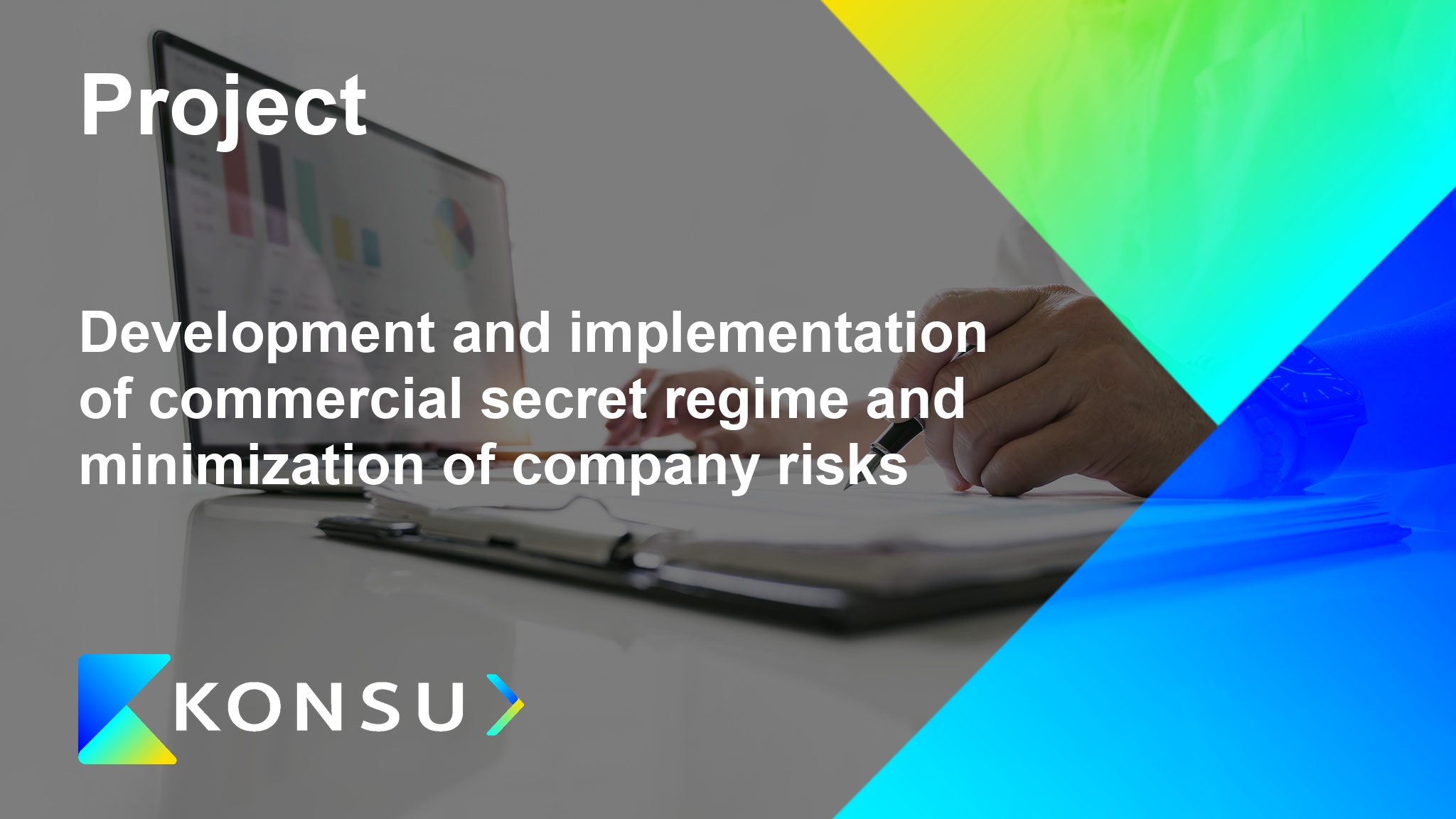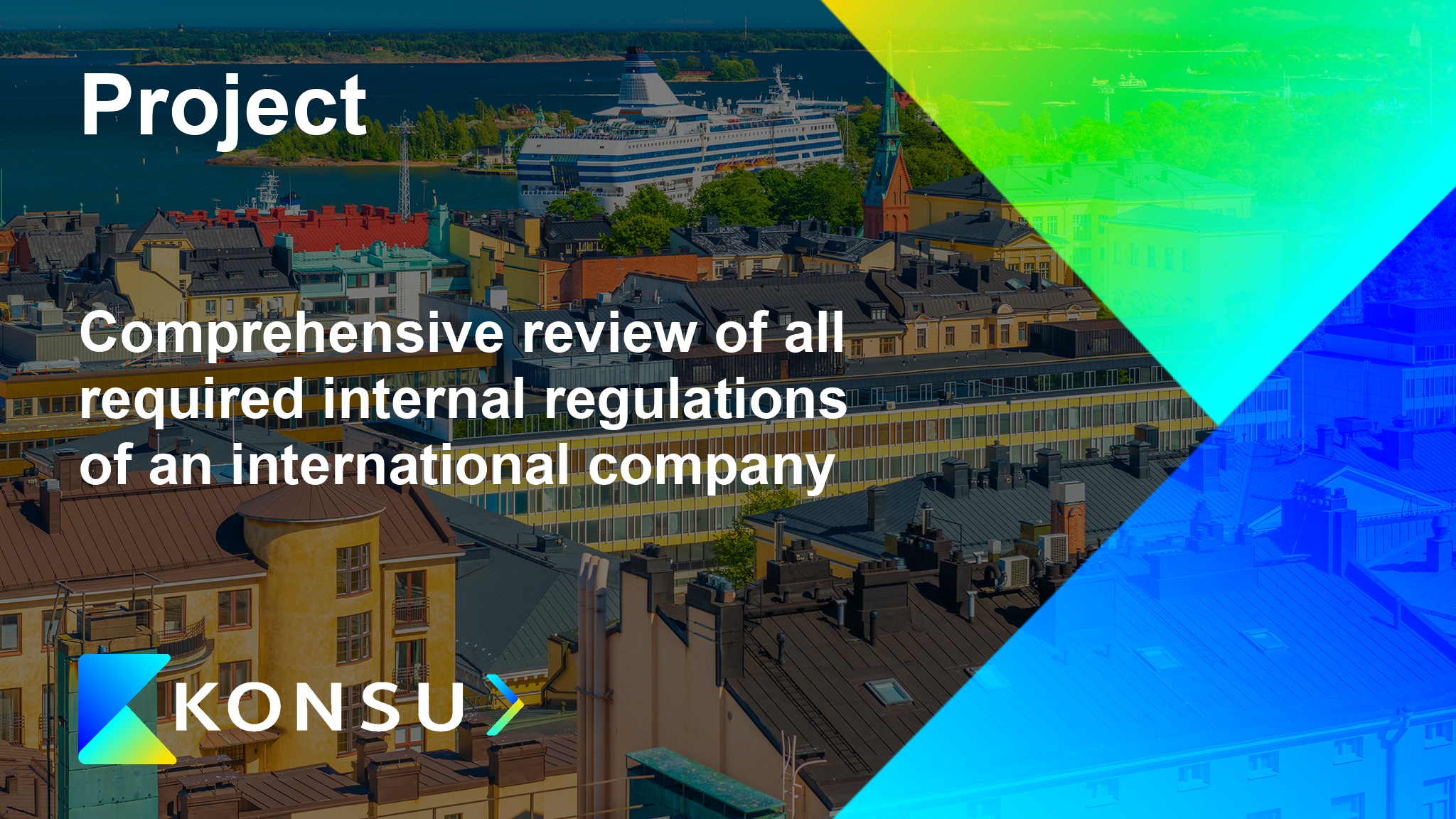Development and implementation of commercial secret regime and minimization of company risks
Client
Russian company. Business activities:
- Wholesale trade in hardware
- Repair of machinery and equipment
- Retail sale of metal and non-metallic constructions in specialized stores
Objectives
Services for development of internal regulations:
- In order to protect the company's interests, development of internal regulations on trade secrets and confidential information to minimize the risks of its dissemination to third parties, as well as the possibility of bringing guilty employees to responsibility

Work stages
- Analyzing the client's activities;
- Determining of the list of documents that may be confidential information and classified as trade secrets according to the current legislation;
- Development of internal regulations on trade secrets with a list of sensitive information;
- Negotiating with the client and employees on the proper storage of confidential information, minimizing the risks of its dissemination, including for the company's counterparties.
Comprehensive review of all required internal regulations of an international company
Client
International company. Activities:
- Wholesale of industrial electrical equipment, machinery, apparatus and materials
- Manufacture of computers, communication equipment and spare parts and components
- Manufacture of instruments and devices for measuring, testing and navigation
- Electrical installation, sanitary engineering and construction works
Objective
Verification of missing internal regulations, the presence of which is mandatory for the company, verification of existing internal regulations for compliance with labor legislation, taking into account the latest amendments and additions, reducing the risks of bringing the company to administrative responsibility for violation of labor law. Read more about the service.

Work stages
- Examination of the presence of all minimally required internal regulations in the company
- Analysis and risk assessment of missing internal regulations, recommendations on their development
- Verification of the provisions of all existing internal regulations, making amendments and additions taking into account the current labor legislation
- Preparation of all missing internal regulations, updating of the existing ones to minimize the risks of bringing the company to administrative responsibility in case of detection of violations by the Labor inspection or prosecutor's office.
Audit of the organization's internal regulations on personal data for compliance with 152-FZ
Client
Major international manufacturer of electrical and electronic equipment for motor vehicles, manufacturer of parts and accessories for motor vehicles. Activities:
- carrying out maintenance and repair of passenger cars
- trade in automobile parts, assemblies and accessories
Objective
Verification of internal regulations in the field of personal data taking into account the latest amendments and additions to the 152-FZ, indicating shortcomings, recommendations for elimination.

Project stages
- carrying out a detailed review of local normative acts on personal data, as well as consent forms
- analysis of violations and inconsistencies identified, taking into account all amendments to the 152-FZ
- identification of missing forms, recommendations on their development
- preparation of the final report on all identified shortcomings, amendments, description of the wording that reduces the risks of bringing the personal data processing Operator to liability, including to reduce the risks of Roskomnadzor inspection
Result – report on all identified violations and suggestions for corrections and additions.
Is it necessary for companies to conduct salary indexation in 2023 and what factors should they take into account?
What is indexation
Salary indexing is the increase in employee wages in accordance with the rise in prices. Indexing the salary level is an obligation, not a right, of the company. This is stated in Article 130 of the Labor Code. The Supreme Court also indicates this in the definition of 08.04.2019 No. 89-KG18-14.
Read more



